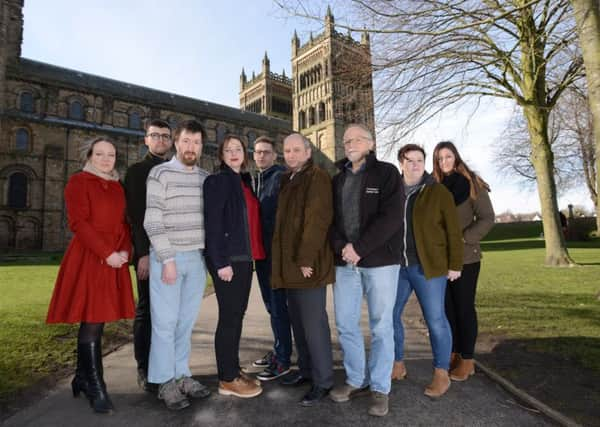Discovery of Cromwell's victims inspires new play


A theatre company is joining forces with archaeologists who have studied the skeletons of the men who fought in the Battle of Dunbar in 1650 to create a major new production in their honour.
An estimated 1,700 soldiers died and were buried in Durham, in the north-east of England, after being taken prisoner and marched there in the wake of the Scottish Covenanting army’s bloody defeat against English Parliamentarian forces.
Advertisement
Hide AdThe “jumbled” skeletons of up to 28 different individuals were found during construction work on a café at Durham University’s Palace Green Library in November 2013. Experts later revealed that identification of the remains as prisoners from the battle was “the only plausible explanation” when scientific data was analysed alongside accounts that soldiers captured in Dunbar were incarcerated in Durham’s castle and cathedral.
Scottish theatre-maker Laura Lindow has been working with experts in archaeology at Durham University who have been piecing together the identity of the soldiers, using facial reconstruction techniques.
Their resulting collaboration will see the stage show, Woven Bones, which will premiere in Dunbar in June before touring around the north-east England. Each performance will be followed by a chance to meet some of the experts who have been working on the project. The tour will also coincide with the launch of an exhibition at the university on the lives and deaths of the soldiers who were taken from Dunbar to Durham.
Lindow said: “The process of the teams working to tease out the story of the soldiers has been fascinating, so it’s really exciting to collaborate with them. I did some work with the forensic department at Teesside University years ago and was struck by the subject of forensic archaeology and the idea of returning names of missing people to their families.”
Professor Chris Gerrard, who has led the university’s research, said: “We want to give a voice to these young men who lost their lives more than 300 years ago and show how it’s been possible to find out details about their lives using the latest scientific techniques. This performance adds a new dimension to the huge amount of research that’s gone into uncovering their story. It really brings home the reality of what they must have gone through.”